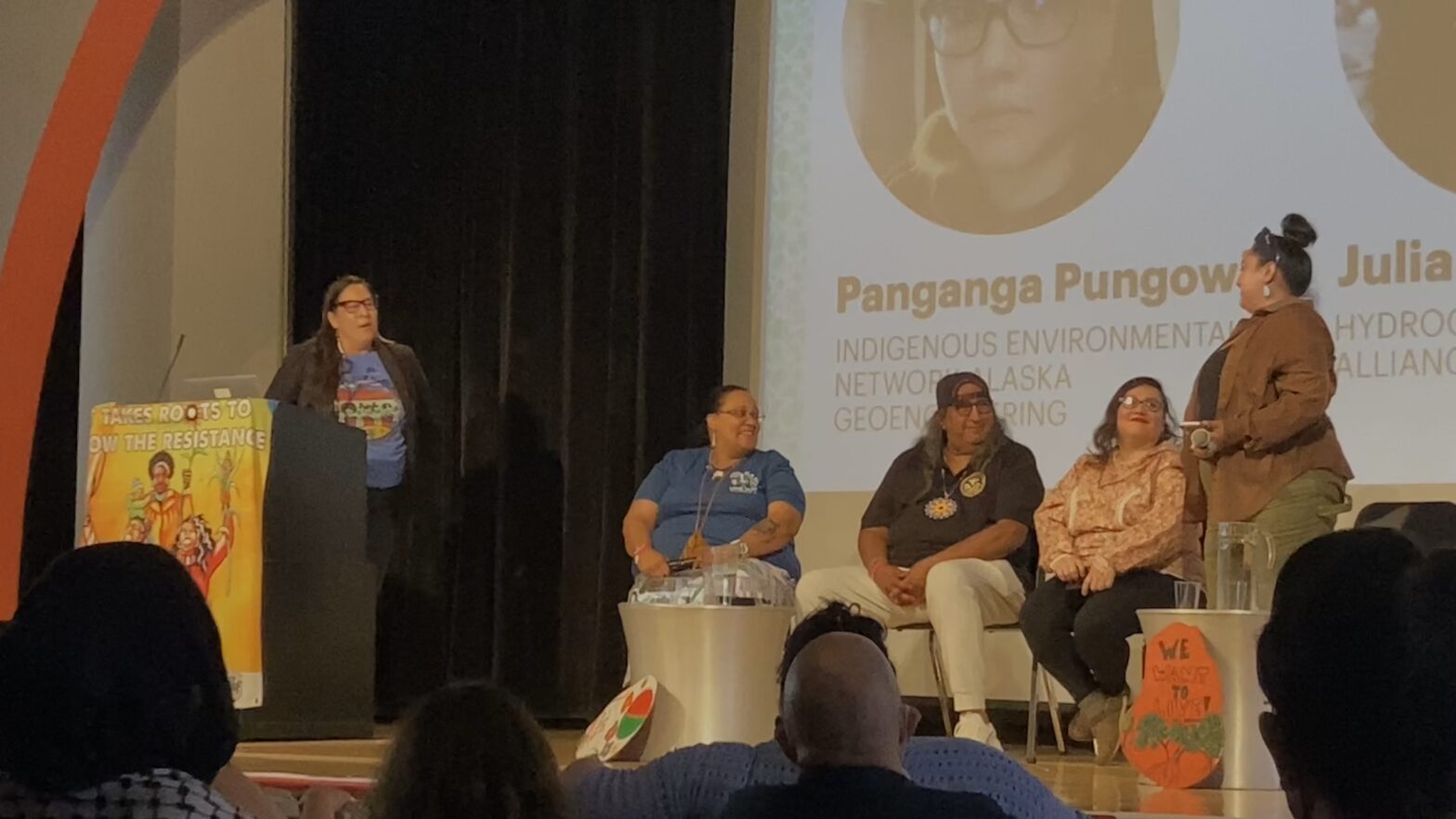In September, hordes of company heads, government figures, and activist groups from across the globe gathered in New York City for Climate Week. With a substantial lineup of large corporate sponsors, including controversial headline partner Saint Gobain – a fabric company that poisoned drinking water supplies – Climate Week hosted marches, demonstrations, and panels on a variety of climate topics.
Meanwhile at The New School’s Tishman Auditorium, climate activists held a “counter-space” to Climate NYC’s Events and its corporate greenwashing — misleading corporate actions meant to give the false impression of positive climate efforts. While the city’s official climate week was anticipated to inspire unity and action among voices in green activism, the “‘Peoples’ Climate Week” called mainstream climate solutions into question.
“Regenerative Metropolis: High Performance Carbon Sequestration 2023”, an official Climate Week event held on Friday, Sep. 23, also hosted by The New School gave the floor to speaker Bruce King, author of “New Carbon Architecture and Build Beyond Zero.” King offered attendees an explanation on the basics of Carbon Capture and Storage (CCS).
Also known as carbon sequestration, it is the process of drawing carbon dioxide out of the atmosphere and storing it. Methods like CCS have long been hailed as green and sustainable solutions to the climate crisis. The United Nations promoted CCS, naming it a “key technology” in long-term decarbonization, according to their Framework Convention on Climate Change.
Soil is the “best and maybe the biggest repository” for carbon storage according to King. He also mentioned hydrogen power, the alternative energy source that’s “coming on strong.”
However, many activists have voiced resistance toward the use of hydropower. Any kind of hydropower is a “false solution,” according to Pueblo Action Alliance director Julia Bernal.
During the concluding event of the Peoples’ Climate Week, Bernal said that “the means of production of hydrogen is not clean” and we should instead “embrace community based solutions.”
“We need to invest in wind and solar: proven technologies.”
Indigenous Environmental Network organizer and tribal healer Panganga Pungowiyi, spoke out against geoengineering. This large-scale manipulation of climate systems is “arrogant” and “not without consequence,” according to Pungowiyi.
She also referenced the corporate carbon offset measure that has yielded Alaskan land to carbon sequestration for profit, the testing of geoengineering methods on indigenous arctic land, and several other instances in which marginalized communities are neglected and exposed to hazardous conditions in the name of climate solutions.
“BIPOC communities and the global south are treated as sacrifice zones for extractive industry and that legacy is continued now as they test their greenwashed techno fixes on our bodies, lands, waters, soil and air,” Pungowiyi said.
“We know that carbon capture is not safe nor effective, but even if it was, there is not even enough land in the world to use it at scale. But they will try, and watch as they try cutting into the biodiversity that our ancestors fought and died to protect since 1492.”
Third-year Parsons School of Design student Sydney Levy attended a few Climate Week events and said that corporate involvement in these types of events is “dangerous.” Levy is a member of the Climate Care Collective, a group of NYC student environmental activists “working to build community and hold our institutions accountable,” according to the group’s Instagram.
“Their motivation is to just show up and make it look like they care,” Levy said. Instead, corporations should take a step back and look at their own actions.
Events like NYC Climate Week are “not their place” Levy said, “This is a place for the community to make their voice heard.”







